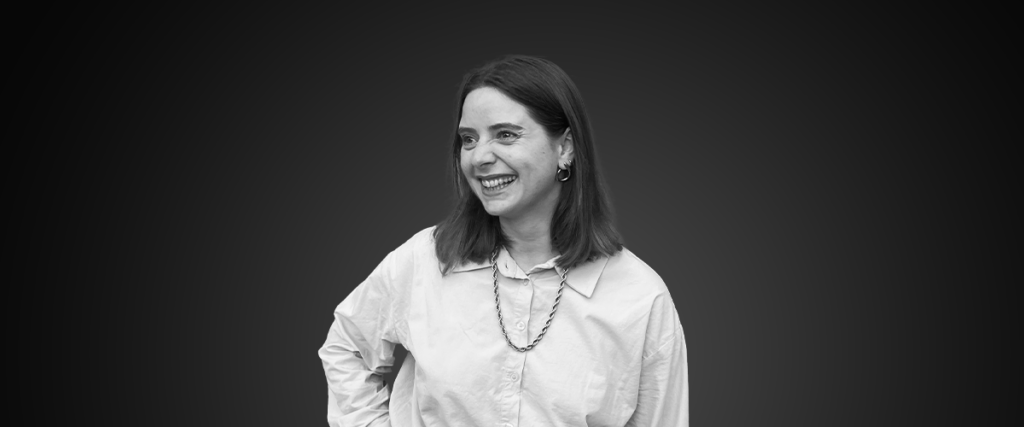You began your career in marketing. What motivated you to transition into development?
I started in market research, conducting qualitative interviews, focus groups, and ethnographies. However, I quickly realized that this job was not for me. At some point, I decided to take a one-month break to think about my future. I had always been drawn to technology but never considered it as a professional path. By chance, I came across an article about no-code, which allows you to create web solutions without coding. Intrigued, I attended a 10-week bootcamp dedicated to women in tech. It clicked immediately. I knew I had to go for it. The problem-solving aspect, the creativity involved in building solutions, and the constant learning opportunities made it clear that this was the right path for me.
How does your marketing expertise help you today in your role as a web developer?
My background in marketing really helps me step back and see the bigger picture. Instead of just focusing on technical performance, I adopt a client-centered approach. My experience in analyzing different sectors also allows me to quickly understand the functional needs of banks and better adapt to the software context.
What is core banking and how does it support a bank’s operations?
Core banking is a central solution that allows a traditional bank to manage all its operations, such as sending transfers or receiving direct debits, for both individuals and professionals. It includes various functional modules, such as payment management (transfers, checks, transactions) and customer account management, which helps the bank better understand its consumers.

Can you tell us about your role in developing core banking solutions?
I’ve been with SBS since 2022, working on SBP Core Amplitude, a large core banking solution. I started in the Payments team, implementing business functionalities, which included developing new business features as well as addressing regulatory requirements such as the CBPR+ norm. Core features involved managing transfers and direct debits, carefully adapted to specific geographic and client requirements.
Recently, I joined the Digital Banking Expertise (DBE) team, a team managing multiple products. I’ve participated in developing connectors that enable clients and clearing systems to interface with the Amplitude core banking platform. My responsibilities also extend to maintaining and evolving historical products like the “portal”, a CRM dedicated to agency managers that provides a centralized view of their clients and enables access to SBP Core Amplitude product functionalities.
What is at stake in your job?
The stakes are high. SBP Core Amplitude, a 30-year-old banking solution, supports over 220 clients, with some African countries relying on it for 80% of their banking operations. A team of 200 ensures its stability and evolution. My role is to optimize its use by integrating new modules and maintaining existing ones. A single bug can disrupt salaries and create economic turmoil. I once fixed an issue preventing an employee from receiving their pay. Our work is essential to keeping banking systems running smoothly.
What are the key technologies behind the solution?
We use a variety of technologies to build our solution, including microservices with Spring Cloud, both REST and SOAP APIs, and MVC frameworks in Java. Additionally, our core banking system utilizes Genero 4GL. We also leverage AI, with tools like Copilot assisting us in development to enhance productivity and efficiency.
If you had unlimited resources, what would you add or improve in the solution?
It is a hard question! If I had unlimited resources, I would focus on improving the integration interfaces in the core banking system to facilitate API integration and seamless connection with other products. This would allow for easier creation of microservices that can address high-value needs in a simple and efficient way.
What was the project that you found most exciting and rewarding?
A project that I found exciting and challenging was my first application in Java. It allows verifying if a client is an American resident to comply with banking legal obligations. It’s a small application, but I’m proud of it because I developed it from start to finish, on my own, in a language I was discovering.
What advice would you give to developers looking to work in fintech?
It’s not enough to focus solely on the technical aspects. It’s important to understand the functional side of the product as well. Get familiar with concepts like banking processes, international transactions, and interbank communication systems. You don’t need to become an expert, but having a solid understanding of these areas will help you create more effective and relevant solutions for the industry.
What’s the most significant lesson you’ve learned so far?
For me, it’s important not to set barriers; everything can be learned. At first, I thought I would never have a place in tech with my atypical background. But in fact, coding is like learning a language: it requires patience, but it’s accessible. What matters is curiosity and the desire to learn. And that’s precisely what motivates me in tech: taking on challenges and constantly evolving.
Would you like to join the SBS adventure? Discover all our job offers on our Careers page by clicking on this link.